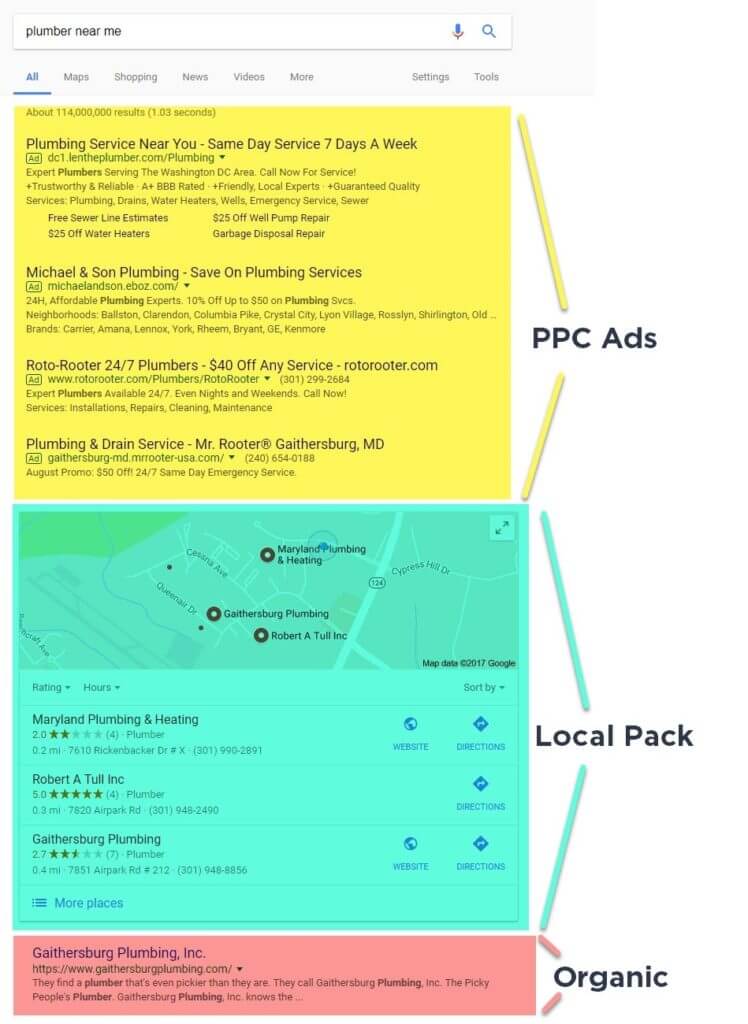Advertising used to be simple. In the beginning, you had one medium—print. You paid a certain amount of money for a certain amount of space in a print publication and celebrated when your sales grew.
Online advertising isn’t so simple. You’ve got a staggering amount of options—paid social media marketing, paid videos, display advertising, and the list goes on from there.
First Things First—What Is Paid Search Marketing?
Paid search marketing is a cost-effective type of Search Engine Marketing (SEM) that matches your ads with users actively searching online for your products or services.
When using paid search ads, you pay to list advertisements throughout the internet search engines and platforms. Paid search marketing is oftentimes referred to as PPC (which stands for pay-per-click). PPC is the most common form of paid search marketing there is.
The term “PPC” is self-explanatory. Every time your ad is clicked on, you pay the network who is showing your ad. Basically, you are buying visits to your website instead of having them simply rank organically.
One thing to note is that while it’s the most well-known platform, paid search marketing isn’t completely driven by Google—other paid search platforms like Bing are also available.
The Difference between Paid Search and Organic Listings
So how do you know if it is a paid advertisement or not? Check out the following anatomy of a search results page:

If you look at the top of the search engines results page above, the first listing is an advertisement. It is labeled as such. The “ad” symbol is small, so you may not have even realized you were clicking on an ad! When you pay for a listing on the search engine results page, you are paying to have your advertisement put either above or to the right of the organic search listings.
How Paid Search Marketing Works
Here’s how paid search marketing works: businesses bid on certain keywords that they want their advertisements to show up for. Paid search keyword strategy is a science on its own, so for now, just know that the more closely the keywords you choose match a user’s query the easier it is for your ad to rank highly.
Paid search ads appear based on an auction. This determines which ads are shown as well as where they are shown. There are a number of factors to determine where your ad will rank—from the landing page (the page that the advertisement directs to) to the relevance of the advertisement to the searcher’s query, and more!

